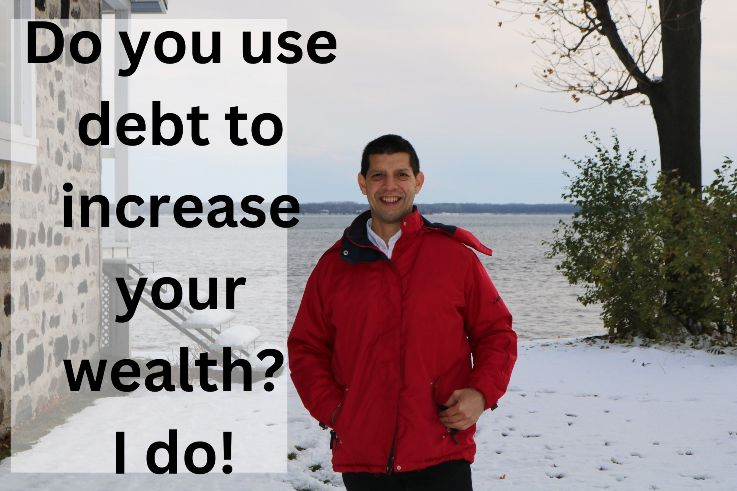This post was originally written in April/2016, at that time I was into real estate and I had a lot of real estate debt. I paid it all off and made an acceptable profit on it.
Go to the bottom to see updates on following years.

I owe a lot
I owe more than $500,000. This debt is composed of mortgage debt and personal debt. I use this debt to invest in real estate and in the stock market. In other words, I borrow money to make money.
I am aware that excessive debt could be dangerous, but what constitutes “excessive debt.” In my case, I have bought two condominiums with down payments of over 20% each. This means that 80% of the property was financed with money from the bank. In the real estate world, this is not excessive. Every month I am making my mortgage payments which in turn reduces my debt and my risk.
As far as the stock market, I am leveraged to about 50%. This means that for every dollar I have in stocks, I have borrowed an additional dollar. I have borrowed money from friends and family at an interest rate of 4%. However, my gains in the stock market are bigger than my expenses.
Toxic debt
Debt is one of the most misused tools in our financial toolbox. Many individuals use debt for consumer items which have no return on capital; vacations, automobiles, and clothes come to mind. Sure you feel pleasure as you spend that money, but you should know that immediate gratification, in the long run, brings more pain than pleasure.
The only reason to get into debt is to invest in assets which can produce returns in excess of your cost of capital. For example, if I borrow money at 4%, I have to make sure that my return will be enough to cover my interest expenses.
A future of deleveraging
I have reached my short-term goals as far as owning real estate and stocks. My next goal is to pay down my debt. If I can, I will pay my debt to the tune of $1,000 per month.
What about you, how does this apply to you?
If you have a plan, if people and banks trust you, and if you can produce returns which are higher than your interest expenses, then borrow money and put it to work. Just be careful, always expect that something will go wrong and be ready for it. There is always something more precious than money at risk: your reputation.
Update January 2019
At the end of 2018, when I usually do my portfolio rebalancing, I decided to sell many of my stocks and pay my debt. The expected return of my portfolio is about 8%. The interest rate savings on the paid debt is 4%. I feel that I am leaving money on the table, but at this point in my life, to have the peace of mind of not having debt, it’s worth it.
Update November 2022
My debt now is $100,000 at 4%. I owe this debt to friends. At a moment in time when inflation is running at almost 9%, I feel that I am getting a good deal for my debt.
For 2022, the S&P 500 is at a negative 16%. So in total my portfolio is negative 20%. And yet, I think I am getting a good deal.
We have to be aware that the market doesn’t go up in a straight line. It goes up and down. Last year most indexes went up over 20%. This year, they are negative, and that’s life as an investor, you never know for sure, all you can do is rely on the probabilities and I know that on the long run, the probabilities are in my favor.
Other personal finance blog posts
- Free transportation for seniors in Montreal
- I gave up my car because of parking tickets
- How to become Financially Independent
